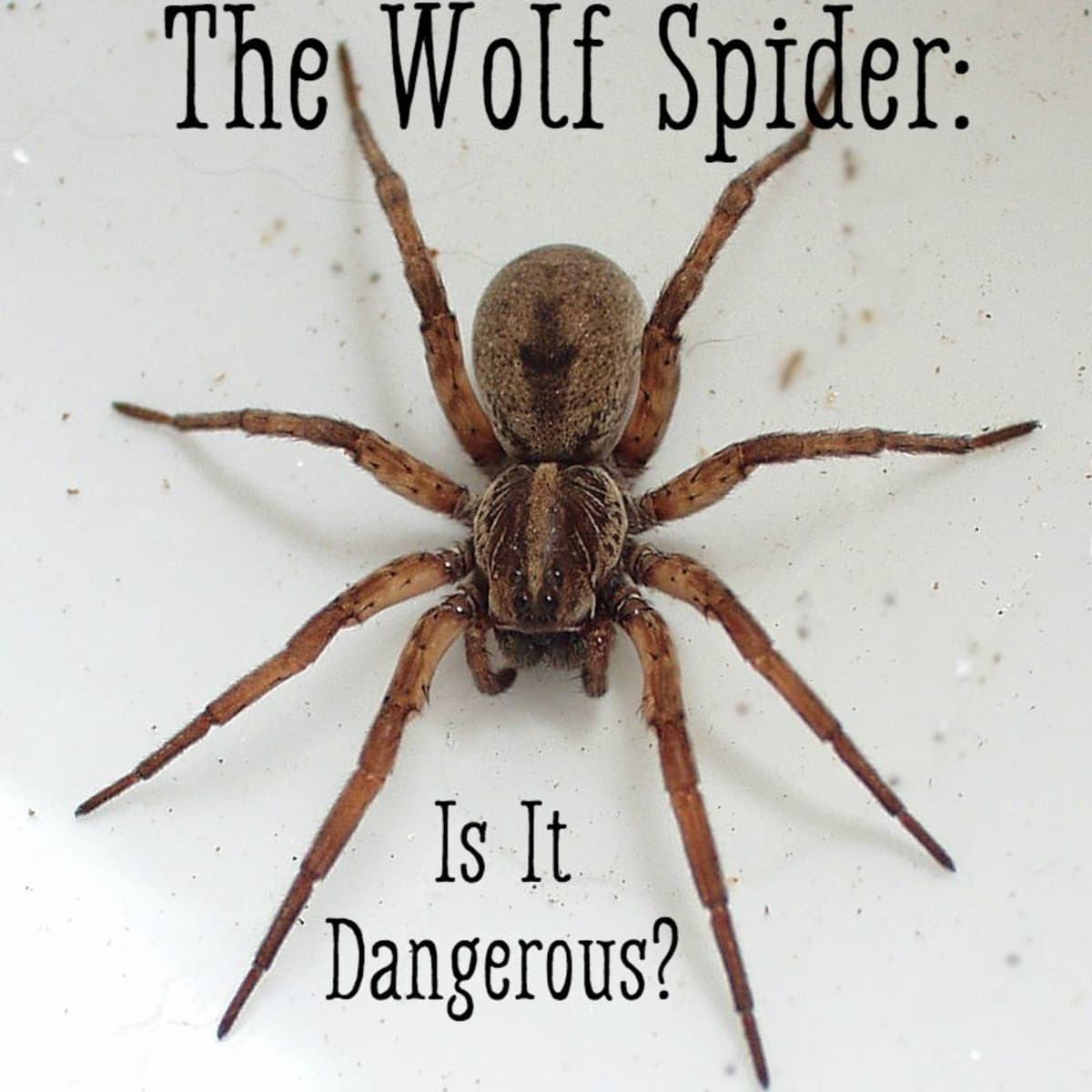The Truth: Are Wolf Spiders Poisonous?
Wolf spiders have long been associated with a reputation for being poisonous. However, there are many misconceptions and fears surrounding these creatures that need to be addressed. In this article, we will explore the truth about wolf spiders and their venomous nature, debunking the myth of their toxicity. So, let’s delve into the fascinating world of wolf spiders and uncover the truth.
Wolf Spiders

Wolf spiders are a diverse group of arachnids known for their unique characteristics and behaviors. They can be found in various habitats worldwide, ranging from forests to deserts. These spiders are typically brown or gray and have a stout body with long, spiny legs. Unlike many other spider species, wolf spiders do not build webs to catch prey. Instead, they actively hunt and pounce on their victims.
There are numerous species of wolf spiders, each with its distinct features. Some are small and inconspicuous, while others can grow quite large. Despite their intimidating appearance, wolf spiders are generally not aggressive towards humans and prefer to avoid confrontation.
Venomous Nature of Wolf Spiders
Before we delve into the topic of wolf spiders being poisonous, it’s important to understand the difference between venomous and poisonous organisms. Venomous creatures, like wolf spiders, produce venom that they inject into their prey to immobilize or kill them. On the other hand, poisonous organisms are harmful when ingested or touched.
Wolf spiders are indeed venomous, and their venom serves a crucial purpose in capturing and subduing their prey. The venom of a wolf spider is a complex mixture of proteins and enzymes that acts as a paralytic agent. It helps the spider immobilize its prey, making it easier to consume.
While wolf spiders are venomous, their bites are typically not a significant threat to humans. The venom is primarily designed to affect their prey, which is usually insects and other small creatures. When a wolf spider bites a human, it may cause localized pain, redness, and swelling. Severe reactions are rare, and most symptoms can be managed with basic first aid.
Debunking the Poisonous Myth
Despite their venomous nature, wolf spiders are often wrongly perceived as highly poisonous and dangerous to humans. However, scientific evidence and expert opinions have shed light on the actual toxicity of their venom.
Several studies have evaluated the potency of wolf spider venom and its potential harm to humans. These studies have consistently shown that while wolf spider venom can cause localized reactions, such as pain and swelling, severe systemic reactions are extremely rare.
It is important to note that proper identification is crucial in distinguishing wolf spiders from other potentially dangerous spider species. Misidentification can lead to unnecessary fear and panic.
Safety Precautions and First Aid
To minimize encounters with wolf spiders in and around your home, it is advisable to take certain safety precautions:
Seal cracks and crevices in walls, windows, and doors to prevent spiders from entering.
Keep your living space clean and clutter-free, as spiders are attracted to dark and undisturbed areas.
Remove any potential food sources for spiders, such as insects and debris.
Use screens on windows and doors to prevent spiders from entering your home.
If you come across a wolf spider in your home, it is best to leave it alone or safely relocate it outdoors.
In the event of a wolf spider bite, it is important to apply appropriate first aid measures:
Wash the bite area with mild soap and water.
Apply a cold compress or ice pack to reduce swelling and pain.
Elevate the affected limb, if possible, to minimize swelling.
Over-the-counter pain relievers can be taken to manage discomfort.
Keep the bite area clean and avoid scratching to prevent infection.
If symptoms persist or worsen, it is advisable to seek medical attention. While severe reactions are rare, a healthcare professional can provide appropriate treatment and guidance based on the individual case.
FAQs
Are all wolf spiders venomous?
Yes, all species of wolf spiders are venomous. However, their venom is primarily intended for subduing their prey and not for causing harm to humans.
How can I identify a wolf spider?
Wolf spiders are typically brown or gray with a stout body and long legs. They have two large eyes in the front row and a row of smaller eyes above. Their unique eye arrangement helps distinguish them from other spider species.
What should I do if I find a wolf spider in my home?
If you come across a wolf spider in your home, it is best to leave it alone or safely relocate it outdoors. Wolf spiders are generally not aggressive towards humans and prefer to avoid confrontation.
Can a wolf spider bite cause serious health problems?
While wolf spider bites can cause localized pain, redness, and swelling, severe health problems are rare. Most symptoms can be managed with basic first-aid measures, and serious systemic reactions are uncommon.
Are wolf spiders found in specific regions only?
Wolf spiders can be found in various habitats worldwide, including forests, grasslands, deserts, and even urban areas. They are not limited to specific regions.
Are there any natural predators of wolf spiders?
Yes, wolf spiders have natural predators such as birds, lizards, and other spiders. These predators help maintain the ecological balance by controlling the population of wolf spiders.
Can wolf spiders be kept as pets?
Some people do keep wolf spiders as pets, but they require specific care and habitat conditions. It is important to research and understand the needs of the specific species before considering them as pets.
What is the lifespan of a wolf spider?
The lifespan of a wolf spider varies depending on the species and environmental conditions. On average, they can live for several months to a few years.
Are wolf spiders nocturnal or active during the day?
Wolf spiders are generally nocturnal hunters, meaning they are more active during the night. However, some species may also be active during the day.
How do wolf spiders reproduce?
Female wolf spiders lay eggs and carry them in a silk sac attached to their abdomen. They guard the eggs until they hatch, and the spiderlings disperse to start their own lives.
Conclusion
Wolf spiders have long been misunderstood and feared due to misconceptions about their venomous nature. However, it is important to separate fact from fiction when it comes to these fascinating creatures. While wolf spiders are indeed venomous, their bites are generally not a significant threat to humans. Severe reactions are rare, and most symptoms can be managed with basic first-aid measures.




